 Healthcare Professionals
Healthcare Professionals 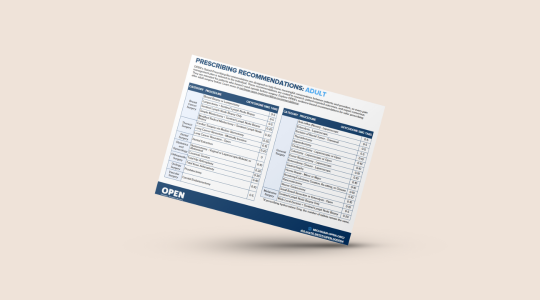
Use OPEN’s evidence-based prescribing recommendations for tailored pain management after surgery in adult patients.
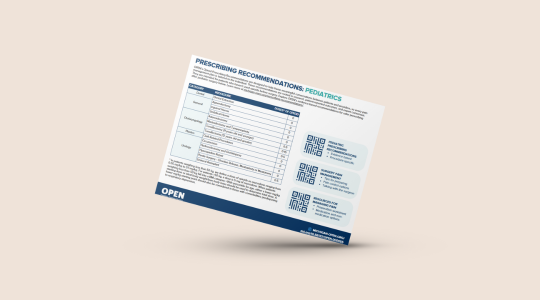
Use OPEN’s Pediatric evidence-based acute care opioid prescribing recommendations after surgery.
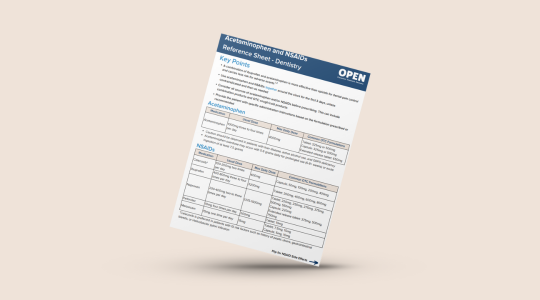
Learn more about prescribing acetaminophen and NSAIDs for pain management after dental surgery.
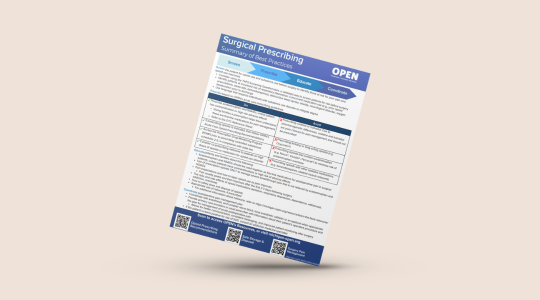
Stay up to date with OPEN’s summary of best practices for prescribing after surgery.
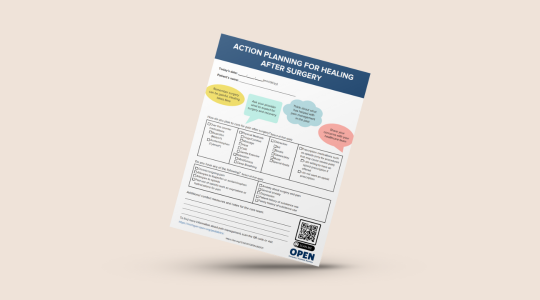
Use this worksheet with your care team to help prepare and manage pain after your surgery.
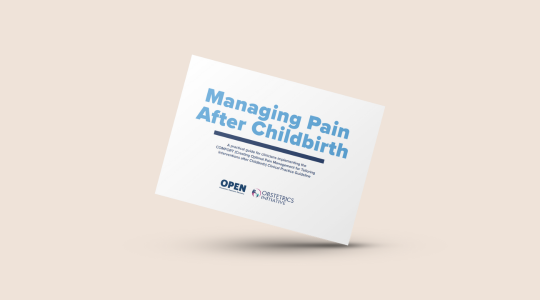
A practical guide for clinicians to learn more about implementing the COMFORT (Creating Optimal Pain Management for Tailoring Interventions after Childbirth) Clinical Practice Guideline.
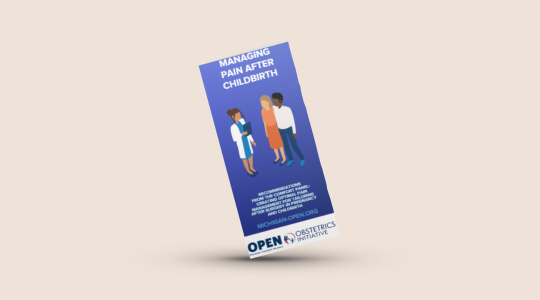
Learn ways to manage pain after childbirth such as: over-the-counter medications, non-medication strategies, and opioids, if prescribed.
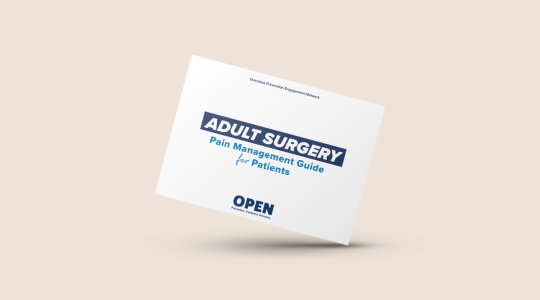
Learn how to prepare for surgery and to help manage pain after surgery.
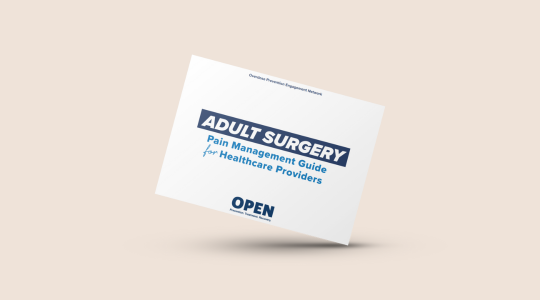
As a healthcare provider, learn evidence-based approaches to help manage your patient’s pain after surgery.
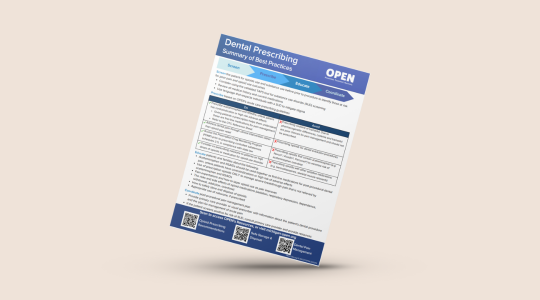
Stay up to date with OPEN’s summary of best practices for prescribing after dental surgery.
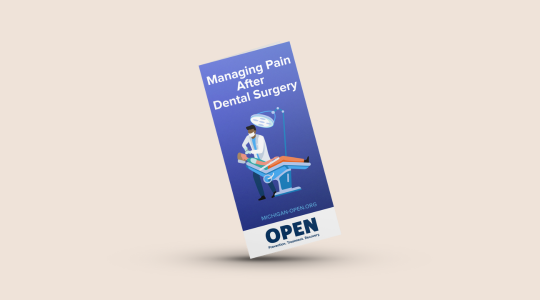
Learn ways to manage pain after dental surgery such as: over-the-counter medications, non-medication strategies, and opioids, if prescribed.
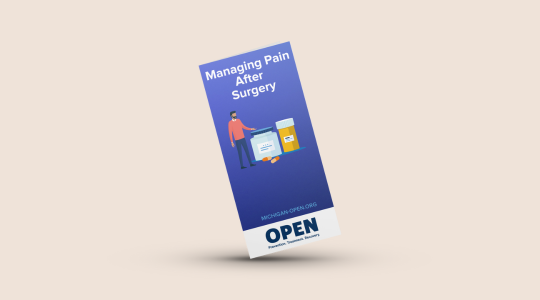
Learn ways to manage pain after surgery such as: over-the-counter medications, non-medication strategies, and opioids, if prescribed.
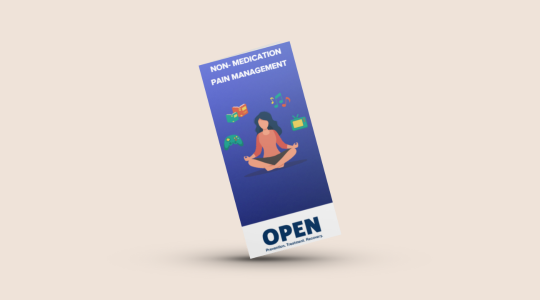
Learn how to help manage or reduce your pain and anxiety through various techniques.

Learn how to help manage your child’s pain and anxiety after surgery.
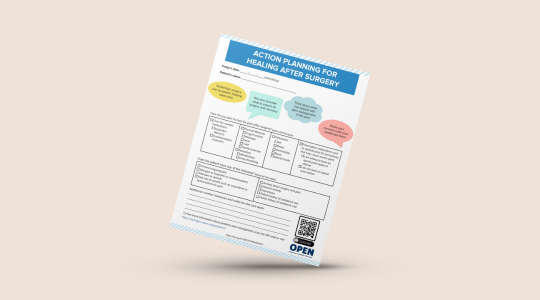
Use and share this worksheet with your child’s care team to help prepare and manage pain after your child’s surgery.
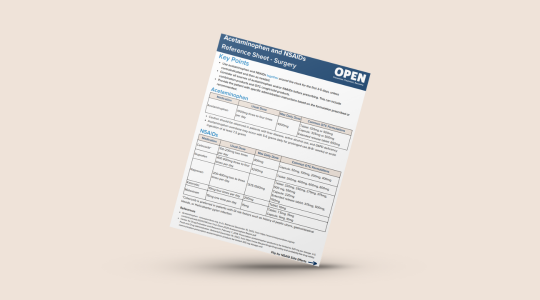
Learn more about prescribing acetaminophen and NSAIDs for pain management after surgery.
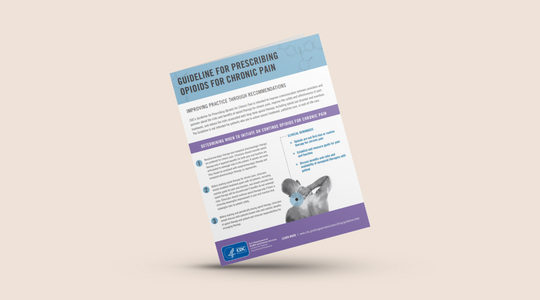
Intended to improve communication between providers and patients about the risks and benefits of opioid therapy for chronic pain, improve the safety and effectiveness of pain treatment, and reduce the risks associated with long-term opioid therapy, including opioid use disorder and overdose.
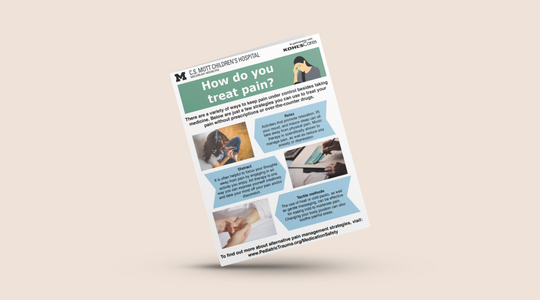
A one-page flyer created by the Pediatric Trauma Group at C.S. Mott Children’s Hospital focused on non-medication options for teens.
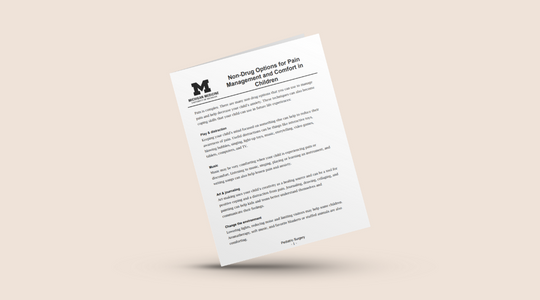
A document created by Michigan Medicine Child Life providing greater detail on non-medication strategies.
Help keep track of the use of medications your child is taking after surgery.